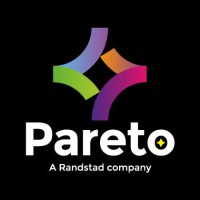The PhD research project is an EPRSC Industrial Cooperative Awards in Science and Engineering (ICASE) with Constellium, a global leader in the development, manufacturing, and recycling of aluminium products and solutions. Constellium aims to produce sustainable aluminium alloys supporting the reduction of embodied CO2. The energy needed to recycle aluminium is significantly lower than that required to produce primary aluminium. Therefore, using as much end-of-life (EoL) scrap as possible to formulate Constellium’s portfolio alloy is an effective way to help to achieve the target of more sustainable alloys. However, this can be challenging due to the potential to introduce a higher impurity level in the alloys.
The project seeks to address these challenges by studying the effect of different impurities and scrap-blends on the corrosion performance of alloys evaluated through different corrosion tests supported by advanced characterisation techniques.
The objectives are as follows:
- To evaluate the effect of minor elements addition and their interplay with elements from EoL-scrap on the alloy corrosion performance.
- To investigate the mechanisms of the effects of different elements that are potentially present in the EoL scrap stream through single and multiple deliberate additions.
- To use advanced characterisation techniques to investigate features in the microstructure that are introduced by impurity elements/EoL scrap blends and understand which elements/phases can significantly degrade/improve the corrosion performance of the alloy.
- To provide suggestions in terms of alloy design and processing conditions (e.g. aging and thermo-mechanical processing route) to optimise corrosion performance of Constellium’s high strength alloys.
This project is an exciting opportunity to work in close collaboration with a world leader in advanced aluminium products and solutions. During the project, you will develop key transferable and practical skills using state-of-the-art characterisation techniques based at a research-intensive university. The project is part of a wider effort by the investigators to investigate recycled advanced alloys. It addresses critical scientifically challenges and aims to bring about positive environmental, economic and societal benefits and will play an important part in accelerating the progression towards net-zero in the UK and globally.
Entry requirements:
Applicants should have, or expect to achieve, at least a 2:1 honours degree (or equivalent) in a materials science subject.
English language requirements:
Applicants must meet the minimum English language requirements. Further details are available on the International website (http://www.lboro.ac.uk/international/applicants/english/).
Funding information:
The studentship is for 4 years and provides a tax-free stipend of £20,780 per annum plus tuition fees at the UK rate. Due to funding restrictions on the EPSRC grant, this is restricted to UK students.
How to apply:
All applications should be made online via the above ‘Apply’ button. Under programme name, select *School of AACME*. Please quote the advertised reference number: * MP-SH-2504* in your application.
To avoid delays in processing your application, please ensure that you submit the minimum supporting documents.
The following selection criteria will be used by academic schools to help them make a decision on your application.
£20,780 per annum plus tuition fees at the UK rate








